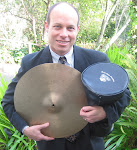The National Review
recently criticized Detroit’s free lunch program. All Detroit
kids, not just those under the poverty line, are awarded a free lunch under the
federal government’s $4.5 billion expansion of the Healthy Hunger-Free Kids
Act. I’ve seen these meals, and calling them healthy is a bit of a stretch, but
what’s wrong with more free lunches, often the best meal of the day for some of
these kids? “(Detroit
is one of three pilot programs starting this month for a free-for-all that will
ultimately cover similar districts nationwide.)”
The government justifies giving wealthy kids the same deal
as the poor kids. The National Review
quotes the Detroit News: “We’ve worked very hard to reduce the
stigma,” according to Aaron Lavallee, a U.S. Department of Agriculture
spokesman. In
other words, the federal government does not want to stigmatize poor kids by
singling them out for free lunches. Instead, give everyone free lunches. Well,
we could, of course, end the stigmatization problem by giving no one free
lunches, but that defeats the purpose of the Healthy Hunger-Free Kids Act. Giving everyone free
lunches, however, raises ethical issues that need to be addressed.
Taxpayers desire a safety net or welfare programs, because
they don’t want their cities to look like Nairobi
or Cairo,
multitudes of desperately poor begging for survival and offering their children
to strangers for a few dollars. Taxpayers are willing to support county hospitals,
state welfare payments, food stamps, college scholarships, affirmative action,
housing projects, and school lunches as long as they believe that the poor (and
therefore, society) benefit. When taxpayers no longer trust that the
government’s transfer payments are helping the needy, support for those
programs will end. Government officials that give everyone the same benefit in
order to spare deserved recipients’ feelings erode support for an otherwise
worthwhile program.
Second, the money wasted on middle class patrons could be
better spent helping the target population. Instead of feeding middle class
kids, the Healthy
Hunger-Free Kids Act could spend that money on the needy, giving away free
breakfasts or after-school snacks at a homework club.
Third, expanding the recipients to the middle class in order
to spare the poor kids’ feelings is a waste of taxpayers’ money. Governments
are obligated to spend the people’s money as carefully and parsimoniously as
possible. Anything short of this standard is theft.
Lastly, economists explain that people do not efficiently
use resources that are incorrectly priced. In the former Soviet
Union, bread was kept artificially cheap by government edict. It
was under priced, selling for pennies, and loaves were wasted and used for
soccer balls. (See Jim Rogers’ Investment
Biker for this and other examples.) When schools give lunches away, much of
the food ends up on the ground or in the garbage. I saw this with my own eyes
while student teaching at an inner-city school. Large amounts of free food
littered the school yard after every lunch. Why? Some kids didn’t like what was
offered and some, despite their poverty, still managed to buy something else to
take the place of the free and unappreciated food. The mess attracted seagulls
and other pests. I can only imagine how much food will be wasted if the Detroit pilot program
becomes popular.
Students at my school punch in a number at the food service station. No one watching knows if the food is discounted. Cards can also be used. How is it done at your school?
Students at my school punch in a number at the food service station. No one watching knows if the food is discounted. Cards can also be used. How is it done at your school?





No comments:
Post a Comment